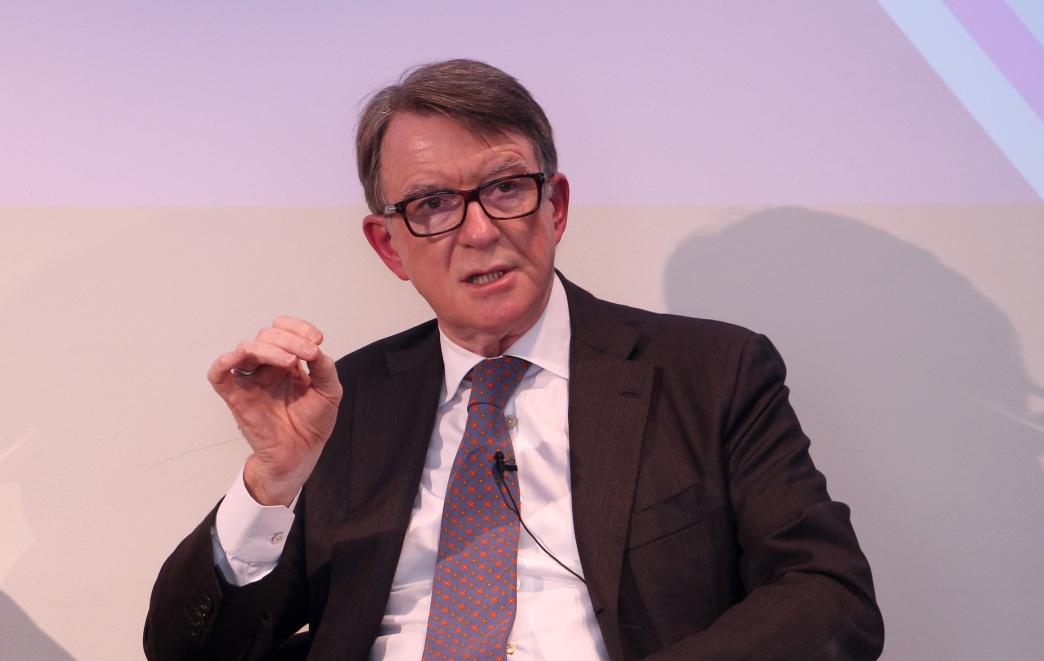Peter Mandelson, former Cabinet Minister, EU Trade Commissioner, Remain campaigner, and lifelong Europhile, came to the IfG to share his insights on the upcoming Brexit negotiations. Jill Rutter says he will hope Prime Minister Theresa May was listening.

National interest above party interest
No deal on Brexit is not an option. That is the very clear advice from Peter Mandelson to the Prime Minister. She must put the national interest above party interest and face down the “wild men” in her party. And if she does so, Remainers should offer her their support.
Of course, Mandelson himself would not be starting from here. He argues that in the first flush after the referendum, there was scope for the UK to explore a deal which kept us inside the Single Market but limited freedom of movement and jurisdiction of the European Court of Justice (ECJ).
Mandelson believes the other 27 member states would have been relieved by any option that kept the UK in the Single Market. The European mood on free movement was changing anyway, and there might have been flexibility on the ECJ. Crucially, he argues that the UK is bigger than Norway and starting from a position inside the EU, rather than trying to negotiate a way in, so it could have sought influence over EU regulations.
But instead of exploring these opportunities, Mandelson says the Prime Minister pre-emptively chose a hard Brexit. The Opposition – Jeremy Corbyn and Keir Starmer – should have challenged her on leaving the Single Market and the Customs Union, he adds.
He notes though that Prime Minister’s tone has mellowed since last year. The peak of the Prime Minister’s “destructive” approach had been at the Conservative Party Conference. Since then, she has toned down the language in both her Lancaster House speech and in the Article 50 letter to Donald Tusk, President of the European Council.
But this tone will be difficult to maintain. She faces a constant battle against those in her party who feel their victory could be “snatched away” and who feel the need “to keep on fighting”.
In Mandelson’s view these politicians are “ideologues not rationalists”. The Prime Minister must not appear “desperate for a deal”. She needs to strike a balance, but she needs to be honest with the public about the options and consequences of failure.
Successful negotiation
Mandelson lays out three principles for successful negotiation: clarity and consistency in objectives; building trust; and retaining flexibility. Constantly looking over your shoulder at those behind you is a recipe for failure.
The UK faces tough, professional, EU negotiators, bound by the Council guidelines, who will also have to make sure they adequately reflect the many national interests at play. Having watched them in action from up close, he “would not wish negotiating with the EU on his worst enemy”. The European Parliament would not want to bring a deal down, but it would want to look at the detail.
Securing a trade deal
The big objective is securing a trade deal. It is in the UK’s interests to settle the money early to make quick progress on the exit deal. What appears to be a “vast sum” is, in practical terms, “small change” when spread over a few years. Walking away from this ‘divorce’ bill would risk UK credibility and damage confidence. The Prime Minister would have to be ready to face down her critics on this, otherwise the bill risks being the first point at which negotiations break down. But money will not on its own buy a trade deal, that depends on observing rules.
Echoing comments from former World Trade Organization head Pascal Lamy, Mandelson stresses that tariffs are the least difficult part of trade deals. The real difficulties come on agreeing a regulatory relationship. This is the second potential cause of breakdown if the EU insists on conditions that we are simply unprepared to meet. Mandelson’s experience suggests early work on scoping and preparation for trade deals pays off; the EU deals with South Korea and Singapore were easier to negotiate because they were well prepared.
Meanwhile, a deal on services with the US – and that would be what the US wants – means aligning with US regulation, their version of reciprocity. But the more the UK aligns with the US, the more it diverges from its “home market” of the EU. So, the UK might face an uncomfortable choice.
The Irish border
And there was a final warning from Mandelson on Ireland. No border was not an option. Mandelson agrees with the former Taoiseach, Bertie Ahern, that there are only two solutions: a hard land border between North and South or for a customs border around the island of Ireland. Brexit means people in the North would face increasing tension between their “political allegiance” and the “economic sacrifice” it entails.
- Topic
- Brexit